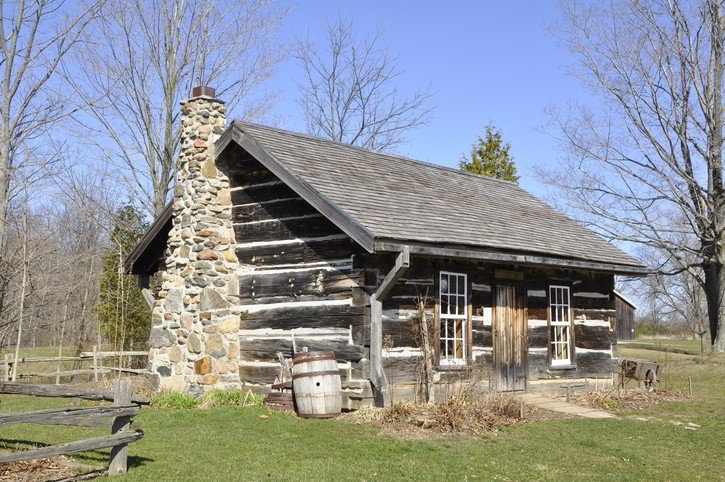Pioneer Homestead: A True Cost Estimate

Today, there is a lot of interest in modern homesteading. With all the convenience of our modern life, many folks still yearn for a simpler way of living. Some detest government interference in their affairs and others rebel against the cost of modern life both in terms of money and the lifestyle required to maintain all of its trappings.
The dream of simple country living is as alive and well as it was with the passage of The Homestead Act of 1862. The act was signed into law by President Abraham Lincoln on May 20, 1862 and stated that a man could lay claim to 160 acres of surveyed government land after meeting residency requirements and making improvements to the land. Evidently, they could file for a patent (i.e. title) to the land after only six months of residency.
The reality of the situation for prospective claimants was that the price of “free” land was much higher than most could have ever imagined. A newspaper article published in the Columbia Dispatch on October 4, 1883 presented a realistic estimate of what it cost to start a claim from scratch.
Pioneer Homestead Cost Breakdown
Estimated Costs (in 1883 dollars)
10.00 Locating Claim
15.00 Filing, trip to land office, etc.
50.00 Claim shanty
30.00 Furniture, bed, clothing, etc.
15.00 Well
105.00 Breaking 30 acres at $3.50 per acre
75.00 Living expenses for six months
200.00 Patent filing fee $1.25 per acre
25.00 Final proof expenses, attorney fees,
advertising,trip to land office, etc.
======
$525.00 Total
When you consider that the average price for an acre of land when deeded was about $8.00 per acre, the 160 acre claim would be worth a total of $1,280.00 when all the ownership requirements were met. A $755 profit looks good on paper, but when spread over 5 years comes to $151 per year. Considering that a laborer in 1883 may make somewhere around $1 per day, they had the potential to make about $313 for a 52 week year or about twice as much as the pioneer homesteader!
Obviously, not many potential pioneer homesteaders took the time to do the math. Accounts of the day reported scores of men came to make a claim with scarcely a hundred dollars to their name. Most of these men eventually abandoned their claims and left disappointed.
There was also many looking to game the U.S. government in an effort to get rich quick. Most of these schemes involved filing a claim and then going home to wait out the residency requirement. There was a reason for all the rules of residency and improving the land, to weed out these types of attempts to defraud.
Even though the act of homesteading really didn't make good financial sense, the promise of "free land" was just too appealing, especially to immigrants and others who realistically had no chance of owning their own land.
In the end, it was those enterprising individuals willing to
endure the many hardships and put in the sweat equity to meet all of the
ownership requirements that were successful. Some took as many as two or three years
until they had a successful harvest and were tested to their very core. You have to admire the incredible strength,
courage and tenacity of these hearty souls.
Read related articles: Sharing Your Family Story
Beginner
Guide
Genealogy Quick Start Guide for Beginners
Applying the Genealogy Proof Standard to your Research
Google Genealogy Research Toolbox
Find Records
Researching Ancestors through Military Records
Using the National Archives (NARA) for Genealogy Research
Using U.S. Census Records
Canadian Genealogy Research using the Internet
Tips
Genealogy Source Citations Made Easy
Listening to Genealogy Podcasts Made Easy

